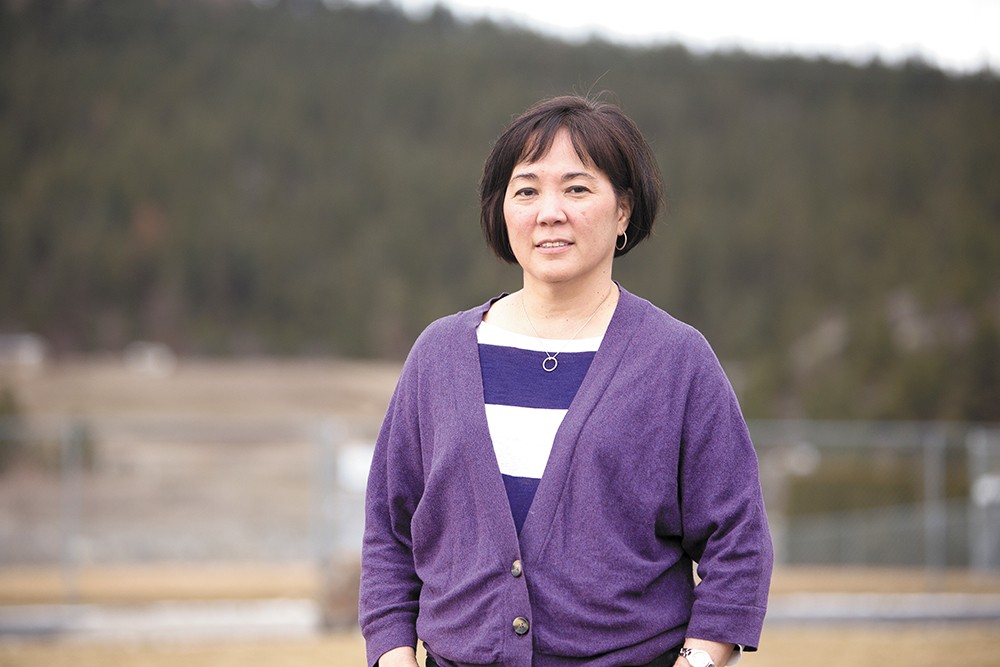The scene was surreal. On a Tuesday morning in March inside the House of Charity homeless shelter, a man screamed at the top of his lungs. House of Charity staff tried in vain to calm him down. He thought he was being shot at.
"You're trying to kill me!" he hollered.
An employee at House of Charity called a mental health crisis line for help. But seconds turned into minutes and tensions were rising. The place was packed. A fistfight erupted that had mild-mannered Ed McCarron, the shelter's director, rolling on the floor to break the combatants up.
"You're going to shoot me!"
So the shelter employee dialed 911.
"It's just like that here every day," says House of Charity case manager Heather Schleigh with a shrug in her cramped office. "It's life or death. They're either immediately suicidal or we're worried for somebody's safety."
At House of Charity, mental health crises are commonplace. Nationwide, homeless individuals disproportionately experience severe and persistent mental illness — at least four times the rate of the general population, according to the National Alliance on Mental Illness. Many also suffer from a concurrent substance abuse problem like alcoholism or drug addiction. According to data collected this year from Spokane's "One Day Count" in January, 22 percent of homeless people surveyed said they were mentally ill.
Thanks to Medicaid expansion under the Affordable Care Act, homeless men and women have the opportunity to get routine and preventive mental health care. The challenge, says Barbara DiPietro, director of policy at the National Health Care for the Homeless Council, is whether or not they'll use it: "Now we've opened the door to more services, how do we connect people who need those services to those treatment slots?"
"Sometimes, people have associated mental health workers with the legal system. They're afraid they're going to get into trouble. They're afraid they're going to be hospitalized or forced to get treatment they don't want," says Esa Lariviere, who supervises Frontier Behavioral Health programs such as the Homeless Outreach Team. Every week, mental health workers scour Spokane streets to help homeless men and women meet their basic needs: warm clothes, a place to stay or a hot meal. Their goal is to build relationships and gently ease the homeless into mental health treatment if they need it.

"A lot of people don't have that insight that the challenges they are trying to overcome every day are related to a treatable mental disorder," she says.
Since January, Frontier has experienced a 20 percent increase in patients seeking services. Frontier CEO Jeff Thomas points to a "pent-up demand." But staffing levels at Frontier haven't kept up with its capacity needs. Case managers at House of Charity are frustrated with long delays after placing calls on Frontier's First Call for Help crisis line. Hours will pass, they say, before a mental health professional shows up to de-escalate the situation. This year, the legislature approved additional investments in Washington's mental health care system, including $3 million for county Regional Support Networks, Frontier's primary source of funding. When that money is doled out to service providers, Thomas hopes to beef up his clinical staff.
"I don't think people sometimes understand the volume that we're working with through crisis response," says Jan Dobbs, Frontier's chief operating officer. "We're probably triaging easily 700, 800 calls a month that are requests for assistance."
Frontier has been instrumental in the recovery of Hector Ortiz, a House of Charity patron. Last December, Ortiz, 29, "snapped." He was anxious and angry all the time, threatening other men at the homeless shelter, goading them into fights. This wasn't like him, he says, but the stresses of being homeless for the first time in his life were wearing him down.
"I'm here in a place where I have to keep watching my back, watching my surroundings, being careful about who I talk to, what I say, where I go," he says. "So slowly but surely, it just, you know, was steaming inside me and I blew up. Next thing you know I started being a smart-ass and behaving in a negative way."
After speaking with a case manager at House of Charity, Ortiz agreed to receive help and signed up for state Medicaid. In January, when his benefits kicked in, he got treatment and medication at a Frontier rehabilitation center. He has a biweekly appointment with his counselor, and a stable regimen of anti-anxiety, anti-depressant and sleeping pills. Now Ortiz is enrolled in House of Charity's vocational program, hoping to get a job he'll enjoy in Spokane. He says that thanks to Frontier he's "on the right path."
"I'm just getting my mind right," he says. ♦






















